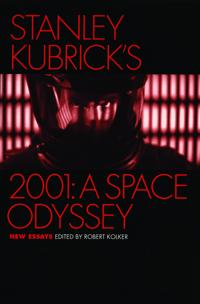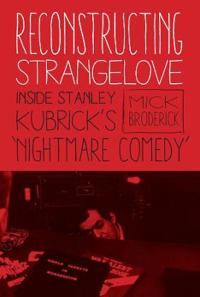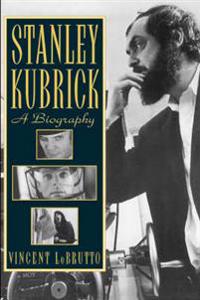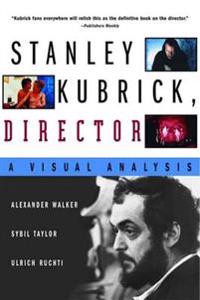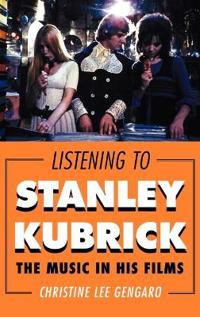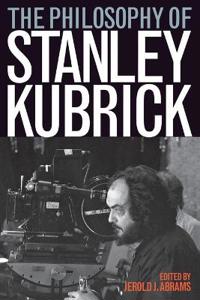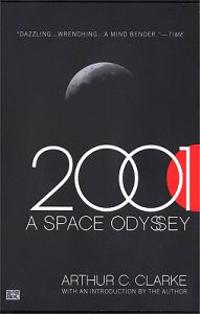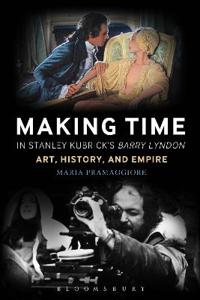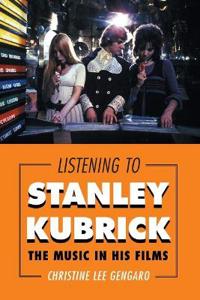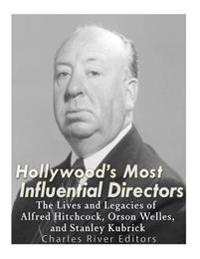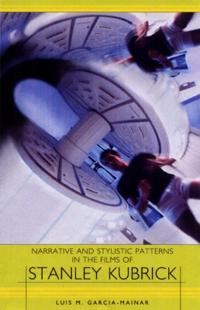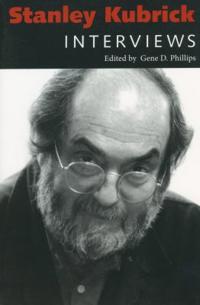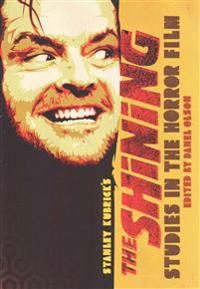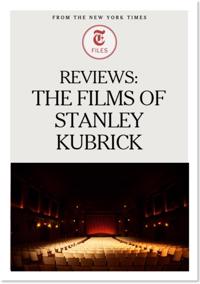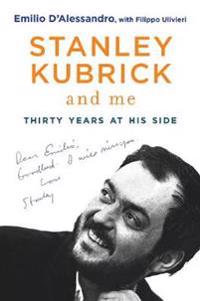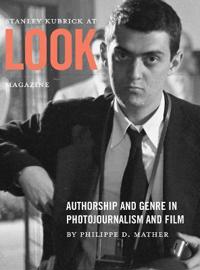Stanley Kubrick's 2001 - A Space Odyssey (Häftad)
avJoe Grey Mysteries
ISBN: 9780195174533 - UTGIVEN: 200605Though "Stanley Kubrick's 2001: A Space Odyssey" boasts a large and ever-expanding fan-base, there are few among even the most avid enthusiasts who fully understand the film's inheritance, complexities, and ironies. The essays in this collection, commissioned from a wide variety of scholars, examine[...]
Reconstructing Strangelove: Inside Stanley Kubrick's "Nightmare Comedy"
ISBN: 9780231177085 - UTGIVEN: 2017-01During his career Stanley Kubrick became renowned for undertaking lengthy and exhaustive research prior to the production of all his films. In the lead-up to what would eventually become Dr. Strangelove (1964), Kubrick read voraciously and amassed a substantial library of works on the nuclear age. W[...]
Stanley Kubrick (Häftad)
ISBN: 9780275972912 - UTGIVEN: 2001-07Studies the style and themes of the films of Stanley Kubrick. The second edition of Mario Falsetto's extensive analysis of Kubrick's films carefully examines the filmmaker's oeuvre in its entirety--from smaller, early films (The Killing) through mid-career masterpieces (Dr. Strangelove, 2001: A Spac[...]
Stanley Kubrick (Häftad)
avVincent LoBrutto
ISBN: 9780306809064 - UTGIVEN: 199904Stanley Kubrick, director of the acclaimed filmsPath of Glory, Spartacus, Lolita, Dr. Strangelove, 2001: Space Odyssey. A Clockwork Orange, The Shining, and Full Metal Jacket, is arguably one of the greatest American filmmakers. Yet, despite being hailed as a giant by Orson Welles, little is know[...]
Stanley Kubrick, Director: A Visual Analysis (häftad)
ISBN: 9780393321197 - UTGIVEN: 2000-09This new edition, revised and expanded to discuss all of Kubrick's films including Eyes Wide Shut again received the approval of the reclusive director, who before his death allowed the use of illustrations taken directly from his films' frames. The result is a frame-by-frame examination of the inim[...]
Stanley Kubrick (Pocket)
avJohn Baxter
ISBN: 9780786704859 - UTGIVEN: 1997-10For decades, the films of Stanley Kubrick have staked out a claim at the core of the cultural landscape. In the 1950s he was one of the few American filmmakers, with Paths of Glory, to achieve the gravitas of European cinema. To 1960s audiences he was the man who made Dr. Strangelove, the influentia[...]
Listening to Stanley Kubrick (Inbunden)
avChristine Lee Gengaro
ISBN: 9780810885646 - UTGIVEN: 201211The musical scores of Stanley Kubrick's films are often praised as being innovative and forward-looking. Despite playing such an important part in his productions, however, the ways in which Kubrick used music to great effect is still somewhat mysterious to many viewers. Although some viewers may kn[...]
The Philosophy of Stanley Kubrick (Häftad)
ISBN: 9780813192208 - UTGIVEN: 200902In "The Philosophy of Stanley Kubrick", a host of respected philosophers investigates Kubrick's art to illuminate his view of reality. In films like "2001: A Space Odyssey", "The Shining", and "Dr. Strangelove", Kubrick explores the world honestly, mirroring the vast complexity of the world of philo[...]
Stanley Kubrick
ISBN: 9780813587103 - UTGIVEN: 2018-04Stanley Kubrick is generally acknowledged as one of the world's great directors. Yet few critics or scholars have considered how he emerged from a unique and vibrant cultural milieu: the New York Jewish intelligentsia.Stanley Kubrick reexamines the director's work in context of his ethnic and cultur[...]
2001 a Space Odyssey (Inbunden)
avArthur Charles Clarke, Stanley Kubrick, Arthur Charles Clarke
ISBN: 9780881032635 - UTGIVEN: 1993-08Two astronauts find their journey into space and their very lives jeopardized by the jealousy of an extraordinary computer named Hal[...]
Making Time in Stanley Kubrick's Barry Lyndon (Pocket)
avMaria Pramaggiore
ISBN: 9781441198075 - UTGIVEN: 2014-12Considered by critics to be Stanley Kubrick's masterpiece, Barry Lyndon has suffered from scholarly and popular neglect. Maria Pramaggiore argues that one key reason that this film remains unappreciated, even by Kubrick aficionados, is that its transnational and intermedial contexts have not been fu[...]
Listening to Stanley Kubrick
ISBN: 9781442244405 - UTGIVEN: 2014-09The musical scores of Stanley Kubrick's films are often praised as being innovative and forward-looking. Despite playing such an important part in his productions, however, the ways in which Kubrick used music to great effect is still somewhat mysterious to many viewers. Although some viewers may kn[...]
Stanley Kubrick
ISBN: 9781496807892 - UTGIVEN: 2016-02Although Stanley Kubrick adapted novels and short stories, his films deviate in notable ways from the source material. In particular, since 2001: A Space Odyssey (1968), his films seem to definitively exploit all cinematic techniques, embodying a compelling visual and aural experience. But, as autho[...]
Hollywood's Most Influential Directors: The Lives and Legacies of Alfred Hitchcock, Orson Welles, and Stanley Kubrick (häftad)
ISBN: 9781542768962 - UTGIVEN: 2017-01Narrative and Stylistic Patterns in the Films of Stanley Kubrick (Häftad)
avLuis M.Garcia Mainar
ISBN: 9781571132659 - UTGIVEN: 200006Garcia Mainar's critical study of the films of the late Stanley Kubrick includes analysis of all but his last work, Eyes Wide Shut, and offers both a formal analysis of the films based on style and narrative pattern, and a theoretical, postmodernist approach to ideas presented in the films. Garcia M[...]
Stanley Kubrick (Häftad)
avGene D. Phillips
ISBN: 9781578062973 - UTGIVEN: 200104From his first feature film, "Fear and Desire" (1953), to his final, posthumously released "Eyes Wide Shut" (1999), Stanley Kubrick excelled at probing the dark corners of human consciousness. In doing so, he adapted such popular novels as "The Killing," "Lolita," "A Clockwork Orange," and "The Shin[...]
Studies in the Horror Film: Stanley Kubrick's the Shining (Häftad)
avTony Magistrale, John Baxter, Danel Olson
ISBN: 9781613470695 - UTGIVEN: 2015-09Edited by Danel Olson (The Exorcist: Studies in the Horror Film), with nineteen new interviews by Justin Bozung and recent Paris/London conversations with co-screenwriter Diane Johnson and the legendary Shining Twins by Catriona McAvoy, this study is the first featuring recent reminiscences with cas[...]
Stanley Kubrick: Adapting the Sublime (Inbunden)
ISBN: 9781617038938 - UTGIVEN: 2013-07Although Stanley Kubrick adapted novels and short stories, his films deviate in notable ways from the source material. In particular, since "2001: A Space Odyssey" (1968), his films seem to definitively exploit all cinematic techniques, embodying a compelling visual and aural experience. But, as aut[...]
Reviews: The Films of Stanley Kubrick
ISBN: 9781625393487 - UTGIVEN: 2015-06This e-single compiles a selection of film reviews from the New York Times archives, focusing on the career of filmmaker Stanley Kubrick - whose 1999 obituary is included as well. You will find his first feature film, "e;Fear and Desire,"e; along with his epic "e;Spartacus,"e; bleakl[...]
Stanley Kubrick and Me
ISBN: 9781628726695 - UTGIVEN: 2016-04This intimate portrait by his former personal assistant and confidante reveals the man behind the legendary filmmaker--for the first time. Stanley Kubrick, the director of a string of timeless movies from Lolita and Dr. Strangelove to A Clockwork Orange, 2001: A Space Odyssey, Full Metal Jacket, an[...]
Stanley Kubrick at Look Magazine (Pocket)
avPhilippe Mather
ISBN: 9781841506111 - UTGIVEN: 2013-04This is a beautifully written and exhaustively researched look at Kubrick's career as a photojournalist at "Look" magazine. It explores how working as a photojournalist at Look shaped his subsequent career as a filmmaker. It features never-before-published photographs from the Look archives and comp[...]
Stanley Kubrick (Inbunden)
ISBN: 9781908966421 - UTGIVEN: 2015-05Stanley Kubrick: New Perspectives brings together essays by scholars who have examined the traces that Kubrick's work has left in archives, in particular his own collection of film-related materials, which was donated to the University of the Arts London in 2007. Richly illustrated with film stills [...]
Stanley Kubrick (Pocket)
avKrohn, Bill
ISBN: 9782866425722 - UTGIVEN: 2010-09-30Stanley Kubrick (USA, 1928-99) was a master who took the art of filmmaking further than any other contemporary director, a creative perfectionist whose work fascinates new generations. He started out as a photographer before moving into film noir aged barely 25, after which the power and originality[...]
Stanley Kubrick Archives (Okänt format)
ISBN: 9783836508872 - UTGIVEN: 2008-10"Stills aus seinem filmischen Lebenswerk von Barry Lyndon, Shining, Uhrwerk Orange, Full Metal Jacket bis Eyes Wide Shut konservieren den Augenblick und machen das Verborgene sichtbar. Kubrick, der uns immer wieder in Bilderfallen lockt und unsere Grenzen neu definiert, lässt uns auch hier die Wort[...]
The Stanley Kubrick Archives (Inbunden)
ISBN: 9783836508896 - UTGIVEN: 2008-10-02The first book to explore Stanley Kubrick's archives and the most comprehensive study of the filmmaker to date, divided into 2 parts. Part 1: The films Kubrick's complete films will be presented chronologically and wordlessly via frame enlargements. A completely nonverbal experience. Part 2: The Cre[...]

